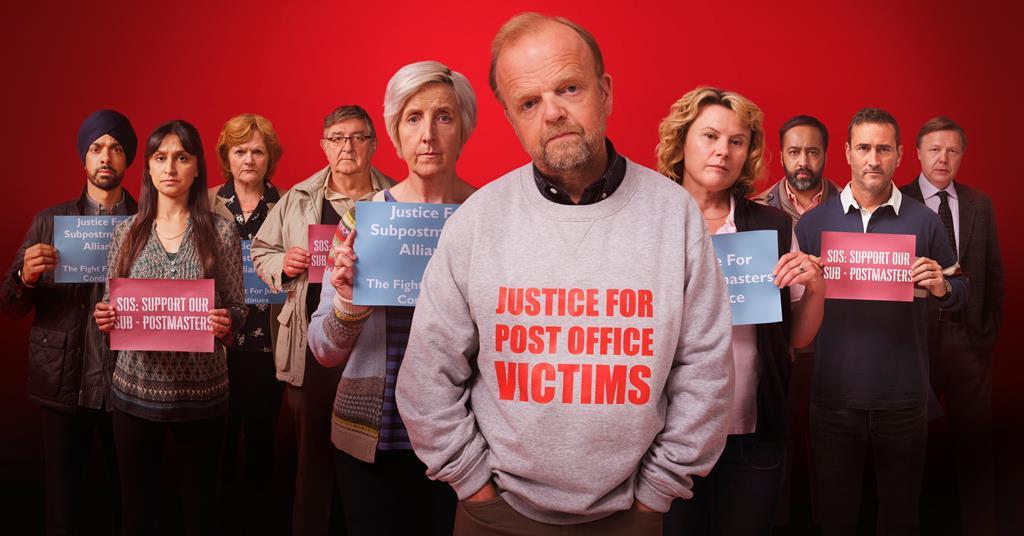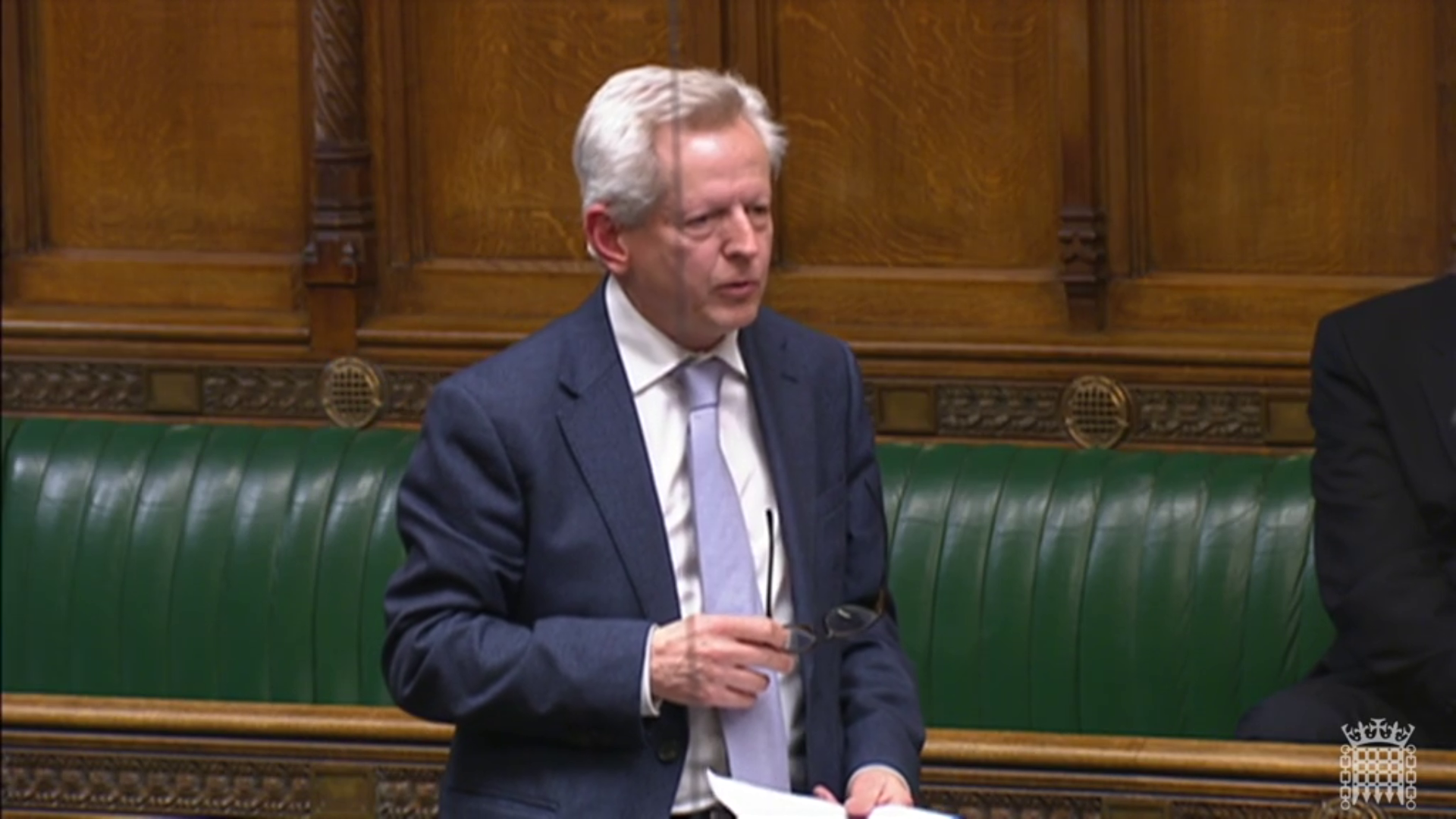
Toby Jones as Alan Bates in the ITV Drama
I recommend everyone watch Mr Bates v Post Office Ltd (https://www.itv.com/watch/mr-bates-vs-the-post-office/10a0469/10a0469a0001).
It’s a drama based on facts, bringing alive over 20 years of wrongdoing against almost a thousand sub postmasters, including Alan Bates.
We now know that the Horizon software system sold to the Post Office by Fujitsu was fatally flawed, that the Post Office’s accusations of theft and fraud by sub postmasters (male and female) were false, the convictions of almost 900 wrong and the physical and mental damage done to those involved devastating - in some cases fatal.
No-one, except my former colleague James (now Lord) Arbuthnot, who never accepted that his sub postmistress Jo was a crook, comes out of this well.
Everyone else - successive governments, Ministers, civil servants, UK Government Investments, advisors, trade unions and courts - have all made mistakes, at the least.
What we still don’t know, and the Sir Wyn Williams Enquiry continues to take evidence on, is who knew what when: who was lied to and who was lying.

Re-opening the Quedgeley Post Office
But it now falls to us all - and Parliament especially - to sort of this out.
And there are others whose role has not yet been revealed: like the National Federation of Sub Postmasters (NFSP), the trade union dating back to 1897.
Why does this particularly interest me? In 2008-9 the previous government decided to close the Kingsholm Post Office and in the campaign to try and keep it I decided to try and make sure, if elected, that these closures (some 7,000 Post Offices across Britain) did not continue.
So although no sub postmaster in Gloucester has been prosecuted, so I had no one to advocate for and no case to take up, I became Chair of the All Party Parliamentary Group (APPG) for Post Offices, whose secretariat was the National Federation of Sub Postmasters.
Our principal focus was how to preserve the 11,500 strong network of Post Offices, while increasing their commercial viability (eg through offering banking services) and increasing sub postmasters’ income (which had dropped sharply when benefits and pensions were paid directly to bank accounts) - all without allowing the costs to taxpayers to balloon.
The key to this was the Post Office Network Transformation of 2012, which provided a modernisation plan for 5,000 Post Offices, with an intention promoted by then Cabinet Office minister Oliver Letwin (not yet realised) of mutualisation of the whole organisation.
I left the APPG at the 2015 election: the network plan had been implemented, and the commitment to retain 11,500 Post Offices fulfilled (subject to someone wanting to take over a Post Office when a sub postmaster retired - which may not always be the case): it took a long time to resolve the Quedgeley Post Office, but we got there in 2013.
Years later when the Mr Bates v Post Office Ltd case began (2018), it was noted that: “... the National Federation of Sub postmasters (“NFSP”), which is the organisation which represents SPMs and their interests nationwide, does not support this action and does not endorse the factual premises of the Claims."
And indeed the trade union was converted into a company with an agreement that the Post Office funded the NFSP and its staff, with a £1m special projects fund, and imposed specific restrictions on its role which left the NFSP contractually unable to stick up for sub postmasters affected.
So although it was natural to assume the NFSP would be a crucial voice for sub postmasters, and that if the NFSP wasn't concerned, nor should MPs without individual cases, the NSFP was effectively “Missing In Action” for a long period, and effectively bought out before the Mr Bates case was heard.
No wonder then that Mr Justice Fraser in his 2019 judgement concluded: “In my judgement.. the NFSP is not remotely independent of the Post Office… nor does it appear to put its members’ interests above its own separate commercial interests…The Post Office effectively controls the NFSP.”
No doubt the role of the NFSP and who asked what when will be scrutinised by the Enquiry. But meanwhile the Horizon prosecution cases were under way and the NFSP advised the APPG not to get involved: these were legal issues to do with a few accounting and software issues, they told us.

The Crown Post Office in The Oxebode
This matters because a trade union should be a vital line of defence for members. The other union which should also be scrutinised is the Communications Workers Union (CWU), whose purpose is: “To promote, by industrial and political means, the success of the industries in which our members work; to campaign against all forms of discrimination.”
The CWU represents today 350 sub postmasters and many Post Office employees. So which CWU members knew what, and how effective was it in working for all members, during the Horizon dispute? Were they more focused on the success of the business or the welfare of their members and was it possible to do both evenly?
I do agree with the CWU in their evidence to the Justice Select Committee in 2020 was that: “it would be a travesty if Post Office Ltd retained any right to bring private prosecutions against its own employees and agents in future." We can all hope that change is made.
But what else needs to happen?
We have to wait for the Enquiry to unravel the big questions of who knew what when and who was hiding knowledge of Horizon’s failures while prosecutions proceeded - only then can there be a Crown Prosecution Service decision on whether (and who) to charge - most obviously in Fujitsu and Post Office Ltd.
But that doesn’t prevent the government from getting on with righting the injustice to sub postmasters and families. Post Office Minister Kevin Hollinrake, who was campaigning on this cause before he was made minister, working closely also with Labour’s Kevan Jones, has laid out 3 key ways to do this:
- Legislating to overturn the convictions of those convicted on the basis of Post Office evidence during the Horizon scandal
- Making an upfront offer of £75,000 which will save those in the Group Litigation Order scheme from having to go through a full assessment to access compensation
- Consulting the independent Advisory Board on the approach to compensation payments, to see if further steps can be taken to hold the Post Office to account and speed up payments
Of these, the biggest by far is whether the Justice Secretary Alex Chalk (my neighbour as MP for Cheltenham) decides to press ahead with overturning the outstanding convictions of over 800 sub postmasters not through courts, likely to be a long and laborious process, but on the floor of the House of Commons, by Parliament.
This would be a very radical change to our constitutional arrangements. Many may feel this would be a unwelcome parliamentary interference in the prerogative of the courts, in a way not done for a very long time. It would, they may argue, set a dangerous precedent domestically and signal opportunity for autocrats the world over - showing that the UK’s famed rule of law can be overturned in a second, if convenient to the government of the day. I know the Speaker has clear reservations himself.

Raising questions on sub postmasters in Parliament
But there is also something else even more important at stake: justice must done, and be seen to be done.
For when so many organs of our system have failed for so long - including the courts, perhaps too easily persuaded that computer software is infallible - then the solution needs to be radical. A miscarriage of justice this size does not need several more years of tortuous court process to unwind if we have a better option.
So - yes to generous compensation packages: yes to overturning convictions in bulk, unless there's a better option: and yes to the Enquiry to show where prosecutions should start.
There are many lessons to be learnt, including these three:
- Don’t assume that because an organisation (in this case the NFSP, and perhaps the CWU) is supposed to be representing members’ interests that it’s quite as simple as that - they might have several potentially conflicting interests
- What might be wrong in almost every other circumstance could be the right solution for a particular issue: and it doesn’t necessarily need to set a precedent that could be abused in another context, if the framing is suitably narrow
- Not having a written constitution gives flexibility to think outside the box - and in the case of Mr Bates v Post Office Ltd we need that, to help recover from this mother of all scandals
In short, much has gone wrong, and many human lives severely damaged - and some ruined. But, with the help of an ITV drama-documentary, there is more work to be done to restore the reputations of sub postmasters, and we must get on with it.
Then there is a question about the best future for Post Office Ltd - but that's for another day.
Let me know your thoughts by e mail on [email protected]
Best regards

P.S. In case anyone is wondering, I am working with one Gloucester sub postmaster who recently sought help, but wishes to remain anonymous.